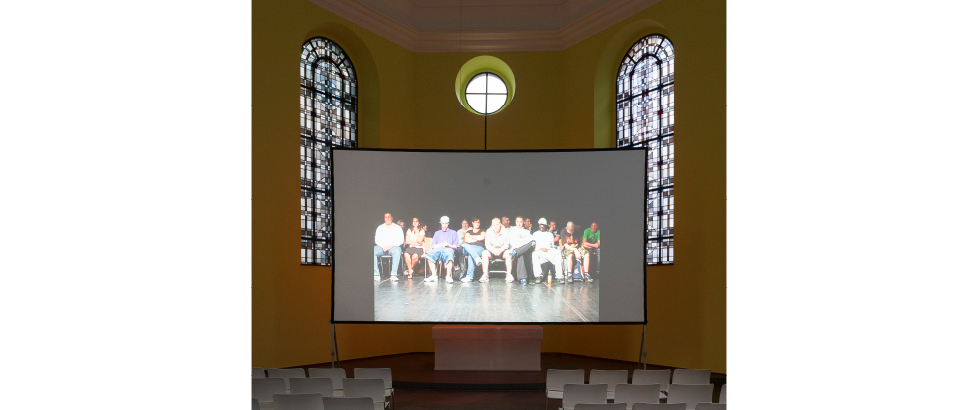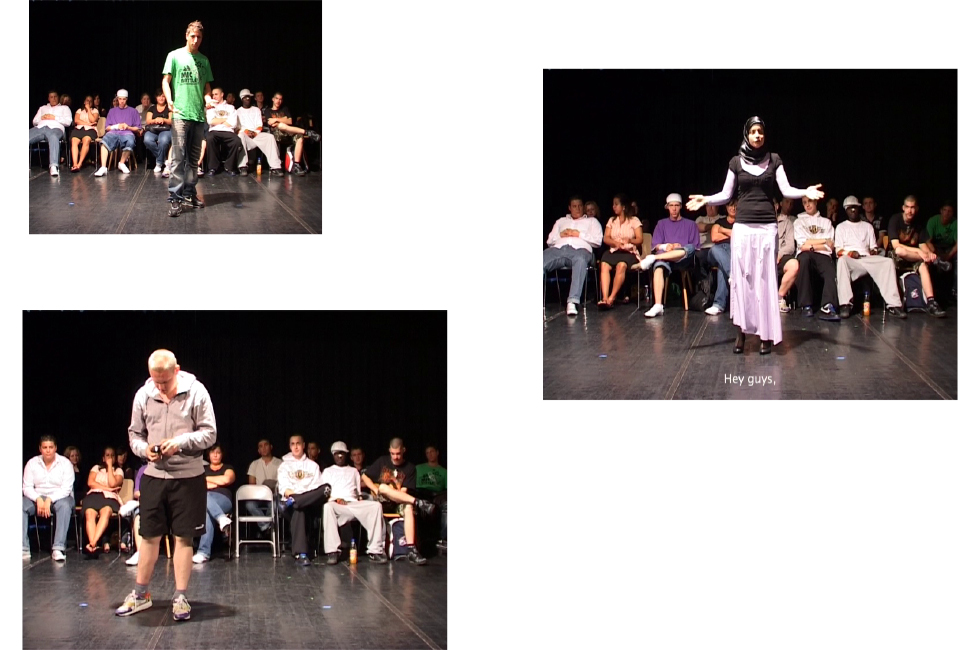17 – BERGERKIRCHE
Frontalunterricht
D 2009 | 41 Min. | Ulf Aminde
Bergerstr. 18b (im Hof), 14:00 – 24:00 Uhr

Ulf Aminde sees personal encounter as the prerequisite for
the artistic work process; a second is its contemplation in
the sense of Bertolt Brecht’s Epic Theater. Although he inevitably
works with other people as a director of theater and
performance projects and films, for him it is the clash of his
interests, expectations, and desires with those of the others
that becomes the subject and core of his productions.
Alternatively as accomplice, rival, and/or companion of
“people on the verge of a crisis,” like those that have an
interest in the relationship of an individual to society, he
develops images together with them that negotiate questions
of identity, social roles, and, thus, his own position as
artist.
The structure of his work corresponds to the movement of a
pendulum in which he radically shifts himself to the center
of the work, while at the same time putting himself at the
mercy of the uncertainties of its outcome. He insists that
his counterparts open themselves up to his needs just as he
confronts the needs of his “actors.”
Ellen
the artistic work process; a second is its contemplation in
the sense of Bertolt Brecht’s Epic Theater. Although he inevitably
works with other people as a director of theater and
performance projects and films, for him it is the clash of his
interests, expectations, and desires with those of the others
that becomes the subject and core of his productions.
Alternatively as accomplice, rival, and/or companion of
“people on the verge of a crisis,” like those that have an
interest in the relationship of an individual to society, he
develops images together with them that negotiate questions
of identity, social roles, and, thus, his own position as
artist.
The structure of his work corresponds to the movement of a
pendulum in which he radically shifts himself to the center
of the work, while at the same time putting himself at the
mercy of the uncertainties of its outcome. He insists that
his counterparts open themselves up to his needs just as he
confronts the needs of his “actors.”
Ellen
